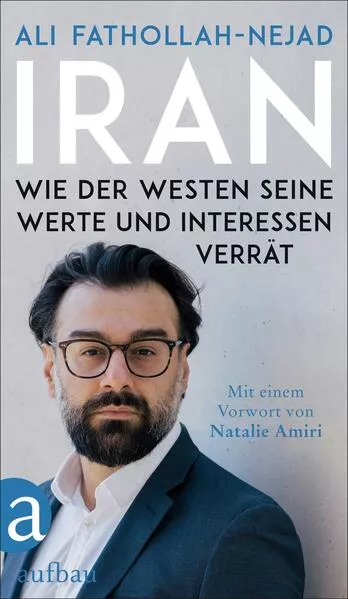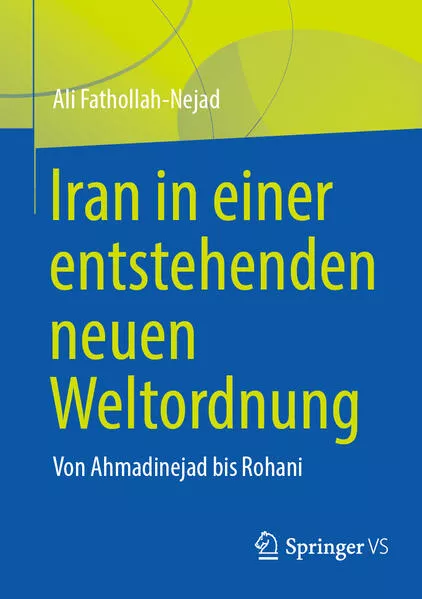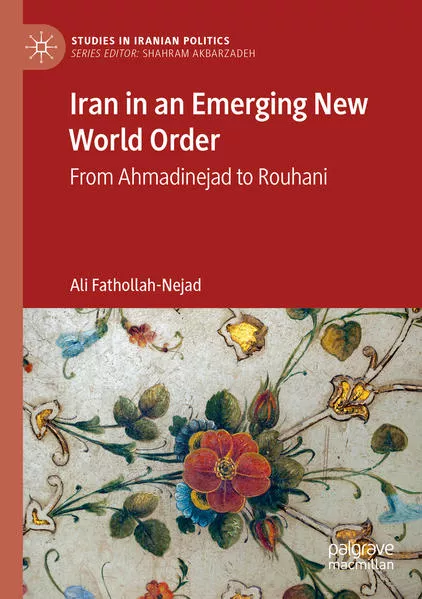
- Publikationen ca: 3
- Buchbewertungen ca: 12
- Fragen & Antworten
Ali Fathollah-Nejad
Ali Fathollah-Nejad is a German–Iranian political scientist focusing on Iran, the Middle East, and the post-unipolar world order. He holds a Ph.D. in International Relations from the Department of Development Studies at SOAS (School of Oriental and African Studies, University of London) and was the winner of 2016/17 post-doctoral fellowship of the Harvard Kennedy School’s Iran Project. He is an affiliated researcher with the Centre d’Études de la Coopération Internationale et du Développement (CECID) at Université libre de Bruxelles (ULB), Freie Universität (FU) Berlin’s Center for Middle Eastern and North African Politics and the Afro–Middle East Centre (AMEC), South Africa’s think-tank specialized on the Middle East. Most recently, he was Senior Lecturer in Middle East and Comparative Politics at the University of Tübingen and adjunct Assistant Professor in the Ph.D. program of Qatar University’s Gulf Studies Center. Ali is also the former Iran expert of the Brookings Institution in Doha (BDC, 2017–20) and the German Council on Foreign Relations (DGAP, 2015–18). In 2020, he published two monographs: The Islamic Republic of Iran Four Decades On: The 2017/18 Protests Amid a Triple Crisis and The Politics of Culture in Times of Rapprochement: European Cultural and Academic Exchange with Iran (2015–16).
Iran – Wie der Westen seine Werte und Interessen verrät
»Ali Fathollah-Nejad legt den Finger in die Wunden der westlichen Iran-Politik!« Natalie AmiriEs scheint, als ob die Islamische Republik Iran einen stetigen Anspruch auf die Schlagzeilen der Weltpolitik erhebt – sei es in Bezug auf den Westen, den Nahen Osten oder aber in der Auseinandersetzung mit der unzufriedenen iranischen Gesellschaft.
Iran in einer entstehenden neuen Weltordnung
In diesem Buch werden die geopolitischen Vorstellungen des Irans kritisch entwickelt und erörtert und die verschiedenen außenpolitischen Denkschulen des Landes und ihre Kontroversen untersucht. Unter Berücksichtigung sowohl der nationalen als auch der internationalen Machtverhältnisse theoretisiert das Buch die post-unipolare Weltordnung der 2000er Jahre, die als „imperiale Interpolarität“ bezeichnet wird, untersucht die Beziehungen des Irans zu nicht-westlichen Großmächten in dieser Ära und bietet eine Kritik der „Rouhani-Doktrin“ und ihrer wirtschaftlichen und außenpolitischen Visionen.
Iran in an Emerging New World Order
This book critically develops and discusses Iran’s geopolitical imaginations and explores its various foreign-policy schools of thought and their controversies. In doing so, the book covers Iran's foreign policy and international relations from "9/11" all the way to Rouhani’s rise (late 2014).


